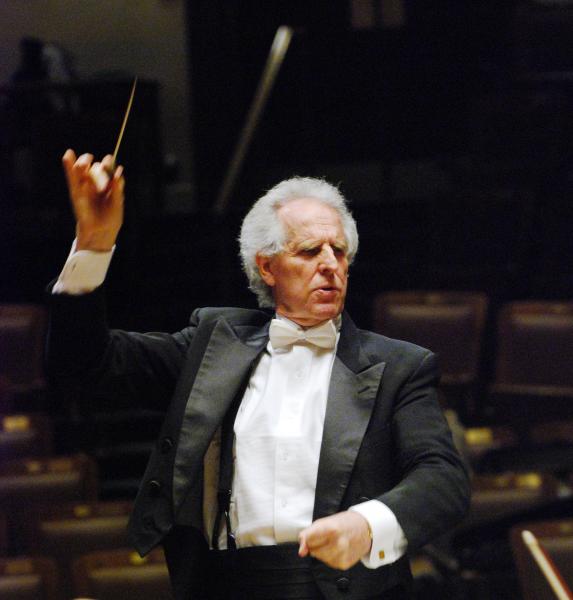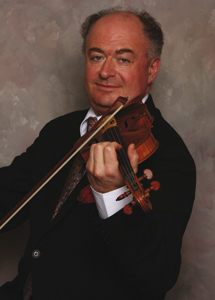Zander, Boston Philharmonic open season with Russian-Scandinavian program

Benjamin Zander and the Boston Philharmonic opened their season with music of Sibelius, Tchaikovsky and Nielsen Wednesday night at the Sanders Theatre.
Benjamin Zander can sell.
The Boston Philharmonic’s professorial conductor has a pitchman’s panache, and sells his product—great classical music—with style and polished enthusiasm, both to his players and to his audience.
Zander’s singular approach worked effectively for the most part Wednesday evening at Harvard’s Sanders Theatre, where the ensemble began its season with a cohesively packaged program of Sibelius, Tchaikovsky and Nielsen. The welcoming list of corporate attendees was impressively robust, and the orchestra, repopulated each year with Boston’s best young professional freelancers, was also anchored with distinguished, veteran principals.
Zander does not attract a typical classical audience, and he’s righty proud of the youthful and diverse patrons, who are definitely not hung up on formal concert etiquette. Nor does Zander shy away from introducing works from the stage, always speaking with genuine enthusiasm.
The conductor illustrated Sibelius’ shimmering tone poem The Swan of Tuonela succinctly, setting the musical mood with a few words and orchestral snippets. That done, he led the orchestra in a crisp and atmospheric interpretation. English horn Peggy Pearson and cellist Rafael Popper-Keizer excelled in the spotlight, and the orchestra, especially the upper strings, maintained an exciting, otherworldly tension.

Ilya Kaler
Like any pitchman, when facts are troublesome, Zander improves upon them. “The Tchaikovsky violin concerto has never caused problems for anyone,” he said, introducing that work, and soloist Ilya Kaler; in fact, the violinist it was written for, Leopold Auer, famously refused to perform it, calling it “unplayable.”
But that curious gloss was the least of the problems. Kaler seemed to be channeling an inner gypsy, with ample fiddle swagger but too casual attention to detail. Several runs were a blur, without precise articulation. At one point in the first movement cadenza he stopped to stare at some unfortunate bloke who coughed out loud. Zander’s accompaniment was slack as well, the orchestra dealing awkwardly with the frequent give-and-take sections of the first movement, often a beat ahead or behind the soloist.
Nielsen’s Symphony No. 4, subtitled The Inextinguishable, concluded the program. An expansive, fascinating symphony, musically it balanced well with the previous works on the program—weighty where Tchaikovsky was romantic, noisy where Sibelius was subdued.
But in this case, Zander left too many of the subtle details of the performance up to the players, without firm direction from the podium. Zander’s downbeat was always there, but faltered in maintaining artistic tension, a key element for orchestras with young musicians. The conductor mostly had his head down, focused on the score, a curious stance for someone so passionate about musical expression.
The orchestra did play with noticeable energy as the work unfolded, and maintained a commitment to Zander’s notion that the symphony seems to strive for a tonal center, hinting at it occasionally but only reaching it at the climax. That much was smartly conveyed at the coda, as the dueling timpani from opposite corners of the stage coalesced in the triumphant final bars.
The program will be repeated 8 p.m. Saturday at Jordan Hall and 3 p.m. Sunday at the Sanders Theatre. bostonphil.org; 617-236-0999.
Posted in Performances




